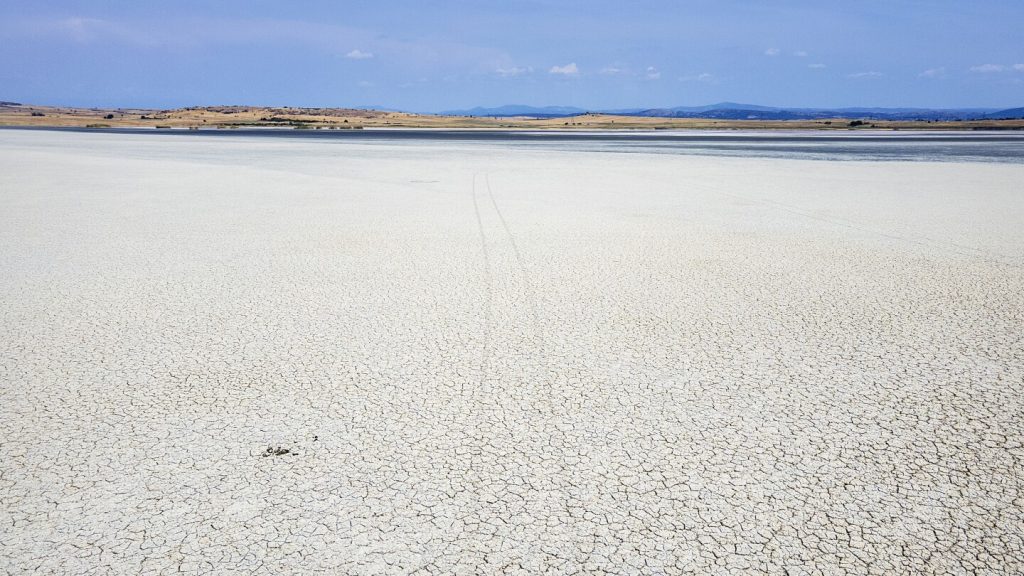Six weeks before harvest, farmer Dimitris Papadakis in northern Greece is facing a water shortage crisis for his olive grove. With the groundwater almost dried up, he now depends on tankers to irrigate his fields, reducing his expected yield by half. The region has been hit by successive heatwaves and below-average rainfall for up to three years, leading to drought spots on the map and various water-related issues like dried-up lakes and wild horses dying from lack of freshwater.
The effects of the water crisis in Greece have been worsened by a booming tourist season, particularly in areas like Kassandra where the population swells to 650,000 in the summer, putting unsustainable pressure on water resources. Local mayor Anastasia Halkia mentions a 30-40% reduction in water supply following three consecutive winters with minimal rainfall. Residents like Haroula Psaropoulou in Nea Potidea deal with frequent household water cuts during the scorching heat by recycling water and carrying sea water for daily use.
The European Union’s Emergency Management Service reports acute drought conditions around the Black Sea and extending into northern Greece. Areas like the Evros River, which divides Greece and Turkey, are experiencing severe drought leading to higher levels of seawater in the delta, which is harmful to wild horses depending on freshwater. Initiatives are being taken to create freshwater drinking points for the animals. Lakes like Picrolimni have completely dried up, affecting tourism that used to thrive on the therapeutic properties of the muddy water.
Local officials and experts are calling for changes in water management practices to address the long-term effects of climate change and mitigate the impact of drought. Lake Doirani, straddling Greece’s northern border with North Macedonia, has seen its shoreline recede significantly in recent years. Experts like hydrogeology professor Konstantinos S. Voudouris emphasize the need for conservation, storage, and reuse of water to combat future droughts with greater intensity. They stress the importance of adapting to this new reality and taking proactive measures to safeguard water resources.
The situation in northern Greece highlights the urgent need for infrastructure improvements and policy changes to address the water crisis exacerbated by climate change. With agriculture, tourism, and wildlife being impacted by water shortages and droughts, it is essential for stakeholders to work together towards sustainable water management practices. Climate experts warn that unless proactive measures are taken now, the region may continue to face severe water scarcity and related challenges in the coming years.















